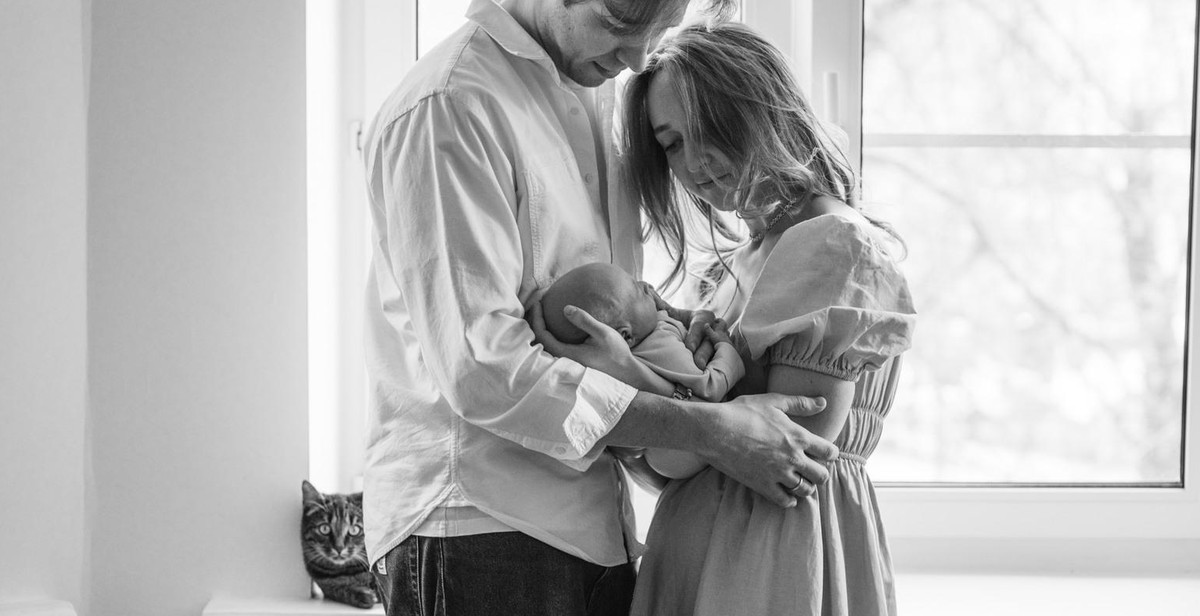The Impact of Family Dynamics on Your Love Relationship
Family dynamics can have a significant impact on your love relationship. The way you were brought up, the relationships you had with your parents, siblings, and extended family members can shape the way you approach love and relationships. Understanding how your family dynamics have influenced you can help you navigate your current relationship and build a stronger connection with your partner.
The Role of Attachment Styles
Attachment styles are patterns of behavior that we develop in early childhood based on the relationship we have with our primary caregiver. These patterns can carry over into our adult relationships and impact the way we interact with our partners. For example, if you had an avoidant attachment style, you may struggle with intimacy and have difficulty expressing your emotions to your partner.
The Influence of Family Values
Family values can also play a significant role in how we approach love and relationships. If your family placed a high value on independence and self-reliance, you may struggle with vulnerability and relying on your partner. On the other hand, if your family valued emotional closeness and connection, you may prioritize those qualities in your relationship.
The Importance of Communication
Understanding your own family dynamics and how they impact your relationship is important, but it’s also crucial to communicate with your partner about their family dynamics and how those influence their behavior. By having open and honest communication, you can build a deeper understanding of each other and work together to create a strong, healthy relationship.

Defining Family Dynamics
Family dynamics refer to the patterns of interactions and relationships that exist within a family. It encompasses the way family members communicate, behave, and relate to each other. It is the complex web of relationships between family members that shapes the family’s overall functioning and influences individual members’ behavior and attitudes.
Family dynamics can be influenced by various factors, such as cultural background, socioeconomic status, family structure, and life experiences. It can be positive or negative, depending on the family’s ability to adapt to changes and challenges.
Why are they important in relationships?
Family dynamics play a critical role in shaping an individual’s personality, beliefs, and attitudes towards relationships. The way a person interacts with their family members can influence how they form and maintain relationships outside the family.
For example, if a person grew up in a family where communication was open and respectful, they may be more likely to communicate effectively with their romantic partner. On the other hand, if a person grew up in a family where conflict was avoided, they may struggle with conflict resolution in their relationships.
Understanding and addressing family dynamics can help individuals identify any negative patterns that may be impacting their relationships. It can also provide insight into their partner’s behavior and help them navigate conflicts more effectively.
Overall, family dynamics can have a significant impact on the success of a love relationship. It is essential to recognize and address any negative patterns to build a healthy and fulfilling relationship.

How Family Dynamics Affect Your Love Relationship
The family dynamics in which you grow up can have a significant impact on your love relationship. Your upbringing shapes your beliefs, values, and behaviors, which can affect the way you interact with your partner. Here are some ways family dynamics can influence your love relationship:
The Role of Your Upbringing in Your Relationship
Your upbringing plays a significant role in shaping who you are as an individual. Your parents or guardians are your first role models, and you learn from their behaviors and actions. If you grew up in a household where love and affection were scarce, it could affect the way you express love to your partner. On the other hand, if you grew up in a household where love and affection were abundant, you may have an easier time expressing your feelings to your partner.
The Impact of Family Communication Patterns
Communication is a crucial aspect of any relationship. The way you communicate with your partner can either strengthen or weaken your bond. Your family’s communication patterns can influence your communication style. If you grew up in a household where communication was open and honest, you may find it easier to communicate with your partner. However, if you grew up in a household where communication was avoided or aggressive, you may struggle with communication in your love relationship.
The Influence of Family Values on Your Relationship
Your family’s values and beliefs can shape your own values and beliefs. If your family placed a high value on loyalty and commitment, you may prioritize those values in your love relationship. On the other hand, if your family did not place a high value on those things, it may be harder for you to prioritize them in your love relationship.
Overall, your family dynamics can have a significant impact on your love relationship. Understanding how your upbringing, communication patterns, and values influence your relationship can help you navigate any challenges that may arise.

Identifying Negative Family Dynamics
Family dynamics are patterns of behavior that exist within a family. They can be positive or negative, depending on how family members interact with each other. Negative family dynamics can have a significant impact on your love relationship, as they can affect your ability to communicate, trust, and form healthy attachments. Here are some common negative family dynamics:
- Enmeshment: This occurs when family members are overly involved in each other’s lives, to the point where individual boundaries are blurred or nonexistent. This can lead to a lack of autonomy and independence in relationships.
- Emotional neglect: Emotional neglect can occur when family members fail to provide emotional support, validation, or recognition. This can lead to feelings of loneliness, low self-esteem, and difficulty forming healthy attachments.
- Control: Control issues can manifest in a variety of ways, such as micromanaging, manipulation, or coercion. This can lead to a lack of trust and a feeling of powerlessness in relationships.
- Abuse: Physical, emotional, or sexual abuse can have a profound impact on a person’s ability to form healthy relationships. It can lead to trauma, fear, and a lack of trust in others.
It’s important to recognize negative family dynamics in your own relationship. Here are some signs that your relationship may be impacted by negative family dynamics:
- You feel like you’re walking on eggshells around your partner
- You have difficulty expressing your emotions or needs
- You have a fear of abandonment or rejection
- You struggle with trust or intimacy
- You have a tendency to repeat unhealthy relationship patterns
By recognizing negative family dynamics, you can begin to take steps to address them and form healthier attachments in your love relationship.

Overcoming Negative Family Dynamics
Family dynamics can have a significant impact on your love relationship. If you grew up in a family where communication was difficult or negative patterns were common, it can be challenging to break those habits and create a healthy relationship. However, it is possible to overcome negative family dynamics and build a strong partnership.
The Importance of Communication
One of the most important steps in overcoming negative family dynamics is improving communication with your partner. It’s essential to be open and honest with each other about your thoughts and feelings. This can be difficult if you’re used to avoiding conflict or bottling up emotions, but it’s a crucial step towards a healthy relationship.
It’s also important to actively listen to your partner when they’re speaking. Try to understand their point of view, even if you don’t agree with it. This can help you both feel heard and valued in the relationship.
Seeking Outside Help
If you’re struggling to overcome negative family dynamics on your own, seeking outside help can be incredibly beneficial. This could mean talking to a therapist or counselor who specializes in relationship issues. They can help you identify unhealthy patterns and provide strategies for breaking them.
You could also consider attending couples therapy with your partner. This can be a safe space to work through conflicts and improve communication. A therapist can provide objective feedback and help you both learn new skills for building a healthy relationship.
Conclusion
Overcoming negative family dynamics can be a challenging process, but it’s essential for building a healthy love relationship. By improving communication with your partner and seeking outside help when necessary, you can break unhealthy patterns and create a strong, supportive partnership.

Building Positive Family Dynamics
Family dynamics play a significant role in shaping individuals’ personalities and behaviors. The way we interact with our family members shapes our perception of love, relationships, and communication. Building positive family dynamics is crucial in maintaining healthy relationships and creating a supportive and loving family environment.
Creating a Supportive and Loving Family Environment
Creating a supportive and loving family environment involves fostering a sense of belonging, acceptance, and emotional safety. Family members need to feel heard, understood, and valued. This can be achieved by spending quality time together, engaging in meaningful conversations, and showing appreciation and affection towards one another.
Developing Healthy Communication Patterns
Healthy communication patterns involve effective listening, expressing oneself clearly, and resolving conflicts constructively. Family members need to learn how to communicate their thoughts and feelings without judgment or criticism. Developing healthy communication patterns involves active listening, empathy, and respect for each other’s opinions.
Instilling Positive Values
Instilling positive values such as honesty, respect, empathy, and responsibility is essential in building positive family dynamics. These values help family members to develop a strong moral compass and make better decisions. Parents can model these values by practicing them in their daily lives and teaching them to their children.
| Benefits of Building Positive Family Dynamics |
|---|
| 1. Improved communication and conflict resolution skills |
| 2. Increased emotional support and sense of belonging |
| 3. Enhanced self-esteem and confidence |
| 4. Better mental health and wellbeing |
Building positive family dynamics takes time, effort, and commitment from all family members. However, the benefits of creating a supportive and loving family environment, developing healthy communication patterns, and instilling positive values are immeasurable. These practices not only strengthen family relationships but also have a positive impact on love relationships outside the family.

Conclusion
Family dynamics play a significant role in shaping our personalities and behaviors, which in turn affects our love relationships. The way we were raised, the values instilled in us, and the relationships we observed growing up all impact the way we form and maintain relationships as adults.
It’s important to recognize the impact of family dynamics on our love relationships and work towards addressing any negative patterns or behaviors that may have been learned. This can involve seeking therapy, communication with your partner, and learning healthy relationship habits.
Additionally, it’s important to understand that every person’s family dynamics are unique, and what works for one person may not work for another. It’s important to approach each relationship with an open mind and a willingness to learn and grow together.
Ultimately, the impact of family dynamics on our love relationships is significant, but it’s not a determining factor in the success or failure of a relationship. With awareness, effort, and a commitment to healthy habits, we can overcome negative patterns and create strong, fulfilling relationships.
